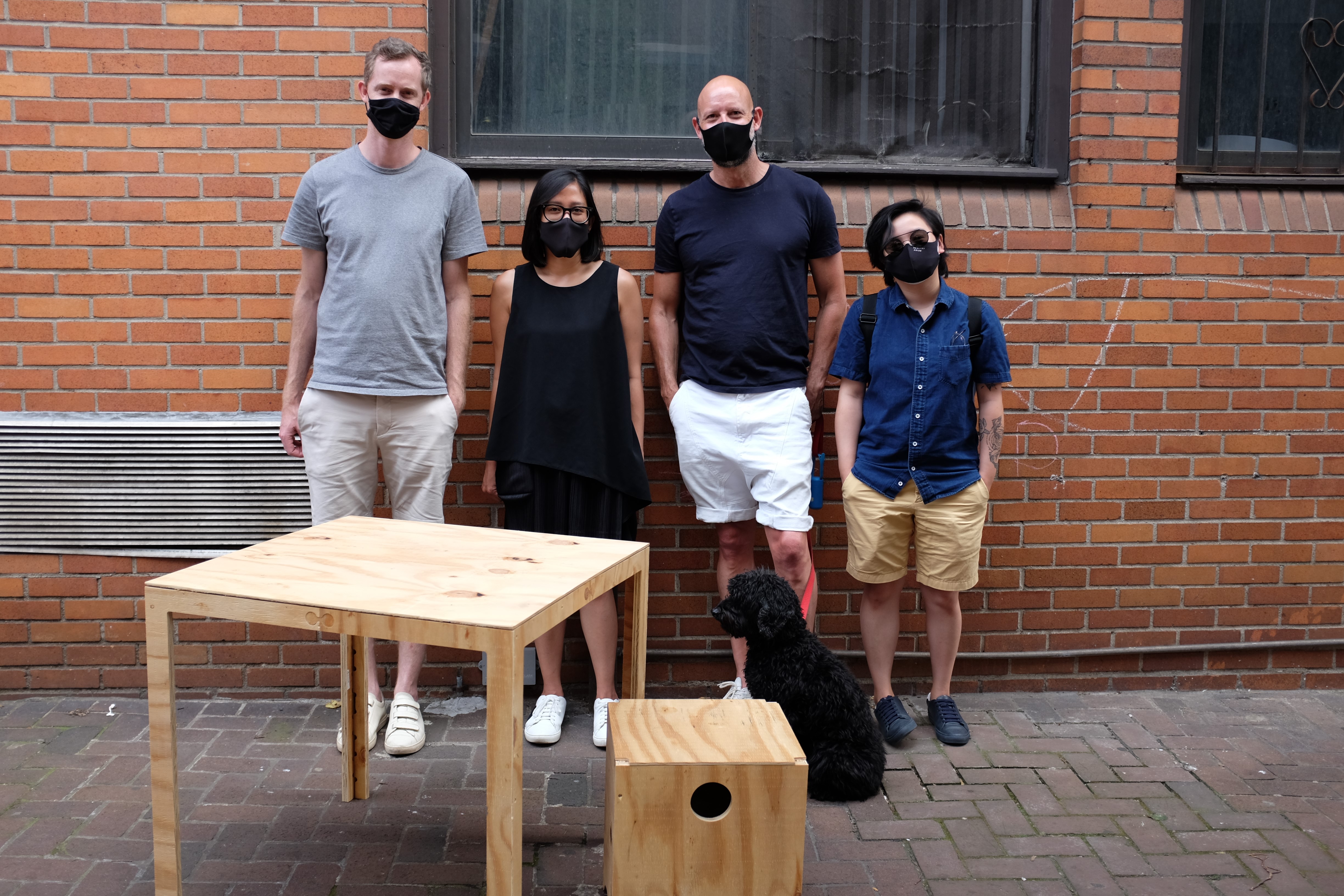
UNSW Interior Architecture graduate Benita Chen is building safe public spaces with the ‘Re-Ply’ team to help bring New York’s communities back together. BVN’s Social venture ‘Re-Ply’ is finding ways to bring life back to New York’s streets by using materials that once protected them.
Benita landed a job at BVN before she graduated. During her final year of the Bachelor of Interior Architecture at UNSW, Benita worked part-time for the global architecture and design firm, before becoming a full-time Interior Designer.
Benita says that the chance to relocate to BVN’s New York studio has been the highlight of her career so far, and a lifechanging experience. “Getting to experience living in a very different city, learning about different cultures and designing for different contexts. It’s been an eye-opening experience,” she said.
Throughout 2020 Benita has been working on BVN’s social venture Re-Ply. The BVN New York team experienced New York City’s COVID-19 lockdown and the nationwide Black Lives Matter protests firsthand. Businesses and shops installed barricades during the protests using thousands of sheets of plywood.
The team at BVN saw the opportunity to re-use the plywood and designed a solution that brought outdoor dining, work and event spaces back to the city. The project intercepts and diverts the plywood from landfill to create sustainable kit-of-parts outdoor furniture and structures.

“We’ve developed a continuously evolving kit-of-parts ranging from outdoor dining settings to help restaurants reopen, to a recent collaboration with co-working space, Neuehouse, to launch ‘Longhouse’ - a flexible outdoor venue for work, meetings and events,” Benita said.
“I think we have always been interested in a kit-of-parts approach to designing interior spaces. We believe by installing more and constructing less we would be able to create more flexible spaces and help minimise building waste.”
“Our Re-Ply products have allowed us to develop this concept at a smaller scale and in a different context – from inside buildings to out on the streets. Facing more challenges from different angles allows us to think about how we can eventually adapt our learnings into our other projects.”
Benita has found the skills she gained from her degree invaluable to her design process and career. “The skill of being able to both collaborate with people as a team or to work as an individual. It has helped me adapt to different work environments and projects quickly,” she said, reflecting on her time at UNSW.

The project highlights how design plays an essential role in responding to today's most pressing issues. Many cities around the world are re-allocating road and laneways to allow greater space for cafes and restaurants to comply with social distancing.
“COVID-19 has challenged the way people think about indoor environments, especially in hard-hit areas. It’s become increasingly important when trying to create an inviting space to consider the balance between different qualities of space. Such as creating a safe and clean feeling but not clinical; creating personal space through subtle ways instead of slapping signs everywhere,” she said.
Through Re-Ply, Benita isn’t just designing useful ways of reducing waste, but also connecting communities and supporting businesses.
"Only by reassessing what qualities spaces need to have to make people feel comfortable again can we reactivate internal spaces and help rebuild our communities."
Discover the UNSW Bachelor of Interior Architecture. How will you use design to make an impact on today’s challenges?
